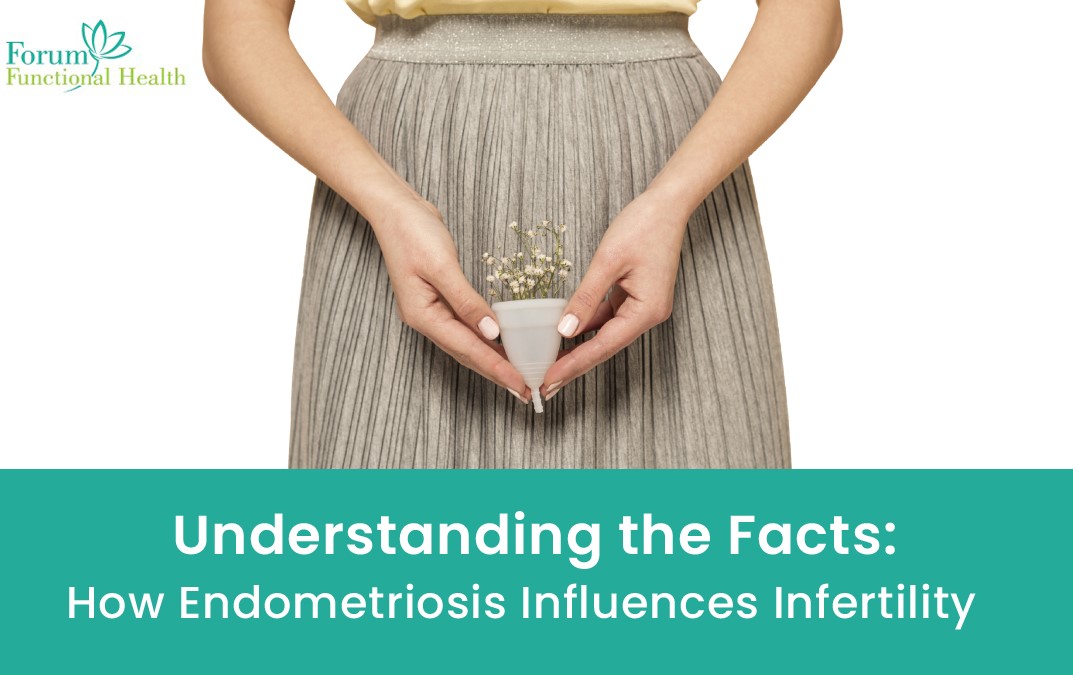Overview of Endometriosis and Infertility
Endometriosis is a common gynecological condition that affects millions of women worldwide. It occurs when the tissue lining the uterus, known as the endometrium, starts growing outside of the uterus. This can cause severe pain, inflammation, and sometimes infertility. In fact, endometriosis is one of the leading causes of infertility in women. Despite its prevalence, there are still many misconceptions and misunderstandings surrounding this condition. This article aims to provide a thorough understanding of endometriosis and its impact on fertility, shedding light on the facts and dispelling any myths.
The Link between Endometriosis and Infertility
Understanding the correlation between endometriosis and infertility is crucial for women who may be experiencing the condition. While endometriosis itself does not always lead to infertility, studies have shown a clear connection between the two.
When endometrial tissue grows outside of the uterus, it can create adhesions and scar tissue. These adhesions can block or damage the fallopian tubes, hindering the passage of eggs and sperm. Additionally, endometrial implants may affect the quality of eggs produced or interfere with the implantation process.
Moreover, the chronic inflammation caused by endometriosis can further compromise fertility. Inflammation can disrupt the function of the ovaries, affect egg quality, and create an inhospitable environment for fertilization and implantation.
How Endometriosis Affects Fertility
Understanding how endometriosis affects fertility is essential for women who are struggling to conceive. As mentioned in the previous section, the presence of endometrial tissue outside of the uterus can lead to adhesions and scar tissue. These adhesions can cause blockages in the fallopian tubes, preventing the egg and sperm from meeting.
Furthermore, the abnormal growth of endometrial tissue can affect the quality of eggs produced by the ovaries. This can make it more difficult for fertilization to occur successfully. Additionally, the presence of endometrial implants can interfere with the implantation process, reducing the chances of a successful pregnancy.
It’s important to note that the severity of endometriosis does not always correlate with the degree of infertility. Some women with mild endometriosis may experience significant difficulty conceiving, while others with more severe cases may have no difficulty at all. Every individual’s situation is unique, and consulting with a healthcare professional is crucial to understand the specific impact of endometriosis on fertility.
Common Treatments for Endometriosis-Related Infertility
For women struggling with endometriosis-related infertility, there are several treatment options available to help improve their chances of conceiving. The specific treatment approach will depend on various factors such as the severity of the endometriosis, the woman’s age, and her overall health.
Medications: In many cases, hormonal medications are prescribed to manage the symptoms of endometriosis and improve fertility. These medications can help regulate the menstrual cycle, reduce inflammation, and suppress the growth of endometrial implants.
Surgery: In more severe cases of endometriosis, surgery may be necessary to remove adhesions, scar tissue, and endometrial implants. This can help restore the normal function of the reproductive organs and increase the chances of pregnancy.
Assisted Reproductive Technologies (ART): In some situations, couples may require assisted reproductive technologies such as in vitro fertilization (IVF) or intrauterine insemination (IUI). These procedures involve the use of fertility medications, the collection of eggs, and the placement of embryos or sperm directly into the uterus.
Lifestyle Changes: Alongside medical treatments, lifestyle modifications can also play a significant role in managing endometriosis-related infertility. These changes may include maintaining a healthy body weight, reducing stress levels, and adopting a balanced diet rich in fertility-boosting nutrients.
It’s important to remember that each woman’s journey with endometriosis and infertility is unique. It’s essential to consult with a healthcare professional to determine the best treatment approach based on individual circumstances.
The Importance of Seeking Professional Help
When addressing endometriosis-related infertility, seeking guidance from a healthcare professional is paramount. It’s crucial to understand that treatment effectiveness varies among individuals. A healthcare professional will assess factors such as endometriosis severity, age, and overall health to recommend a personalized treatment plan. Lifestyle modifications may also be suggested to enhance conception prospects. The supportive role of a healthcare professional is invaluable, providing emotional support throughout the challenging journey.
At Forum Functional Health Care Center, our approach to infertility involves a comprehensive examination of potential causes and their respective groups. By identifying structural factors, often with the assistance of a gynecologist, we streamline the diagnostic process. As certified functional medicine practitioners, our unique perspective goes beyond isolated examination. We delve into the biology, assessing how detoxification, digestion, and adrenal systems collectively impact reproductive functions. This holistic approach allows us to uncover root causes and tailor effective treatment strategies for individuals or couples grappling with infertility.
When a woman seeks our assistance for infertility concerns, our priority at Forum Functional Health Care Center is to methodically identify potential causes and categorize them. Collaborating with gynecologists to pinpoint structural factors streamlines our diagnostic process. As certified functional medicine practitioners, our focus extends beyond isolated examinations. We investigate the biological perspective, considering how detoxification, digestion, and adrenal systems collectively influence reproductive functions. This comprehensive approach allows us to identify root causes and design tailored treatment plans for individuals or couples navigating the complexities of infertility.
In conclusion, dealing with endometriosis-related infertility can be a challenging and emotional journey. It is crucial to seek the guidance of a healthcare professional and create a support system to navigate this difficult time successfully. Connecting with others who are going through a similar experience, whether through online support groups or reaching out to friends and family, can provide comfort, understanding, and valuable advice.

